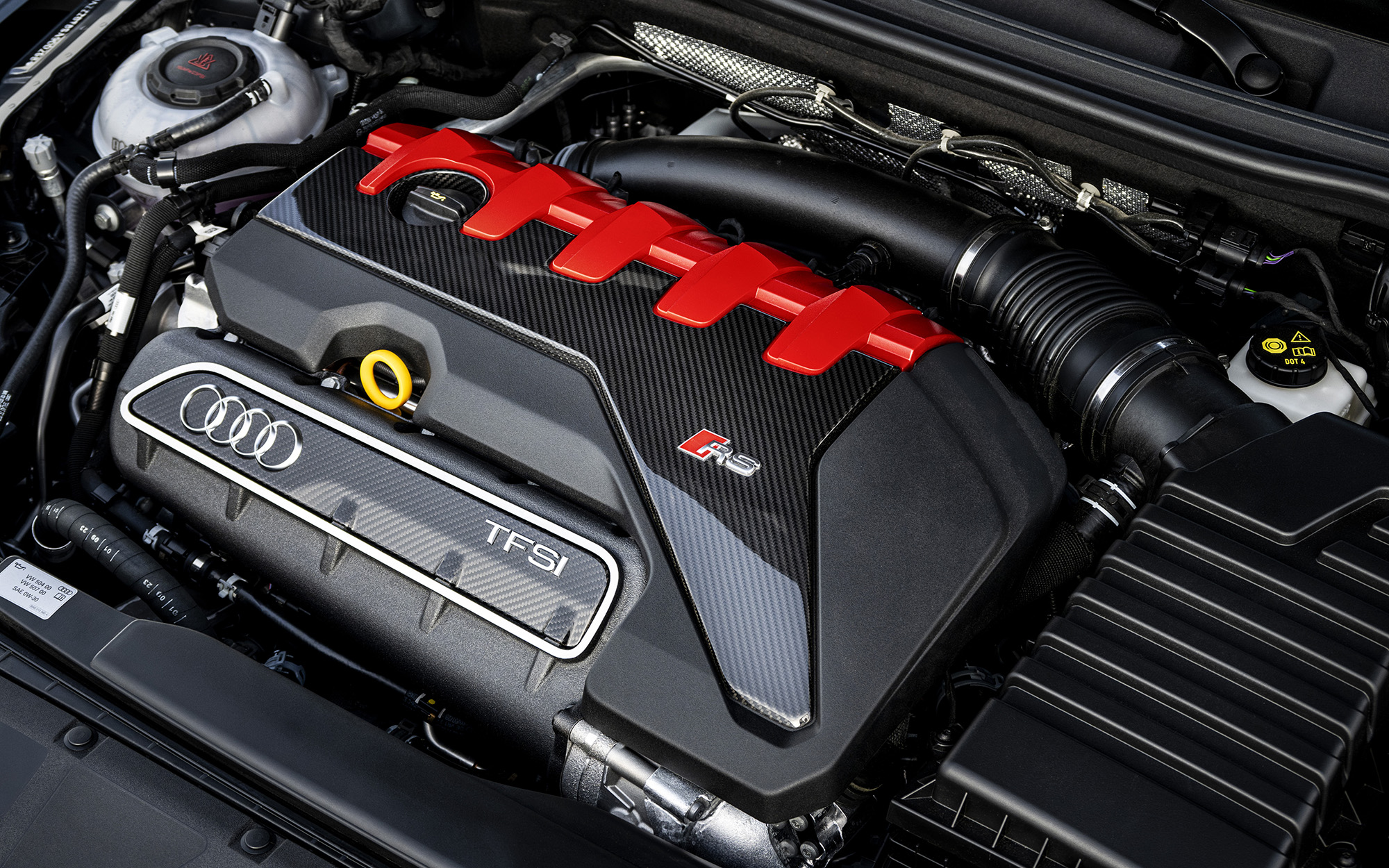Few engines define the Audi identity like the turbocharged inline-five. It is an internal combustion signature written into the brand’s DNA, from the original “ur” quattro of the 1980s to today’s RS 3. But according to reporting from Auto Motor und Sport, Audi CEO Gernot Döllner all but confirmed the five-cylinder will not survive the upcoming Euro 7 emissions regulations, due to take effect in late 2027.
DÖLLNER’S STATEMENT… WITH CAVEATS
Speaking to Australian journalists on the sidelines of the Munich IAA, Döllner said bluntly: “No, as of now, the five-cylinder will probably end with Euro 7.” That qualifier — “as of now” — leaves a narrow back door open. Still, coming from the CEO, the message feels more like a forewarning than speculation. Audi has declined to expand further, but the implication is clear: enthusiasts hoping to own a new RS 3 with its trademark warbling soundtrack may have only a short window left.
WHY THE FIVE-CYLINDER MATTERS
Audi’s 2.5-liter turbo five-cylinder isn’t just an engine. It’s a brand-defining differentiator. No rival offers a comparable package: 400 horsepower, 500 Nm of torque, and a unique character that bridges modern efficiency with a throwback to the brand’s quattro glory days. The only other recent example was Cupra’s limited-run Formentor VZ5, which is already sold out. In the broader market, the RS 3 remains the sole five-cylinder offering. Losing it means Audi surrenders one of its most distinctive signatures.
PUZZLE OF EURO 7
Technically, as Döllner admitted, compliance is achievable: “No, that’s not difficult.” Engineers within VW Group have reportedly already adapted the five-cylinder to meet Euro 7 requirements. The sticking point isn’t feasibility but economics. Updating such a niche engine for a single low-volume model doesn’t align with Audi’s broader push toward electrification and stricter CO₂ fleet averages. In other words, the five-cylinder may be a victim less of emissions regulations than of fleet strategy.
THE LAST HURRAH?
Before the curtain falls, insiders suggest Audi Sport may prepare one final send-off. Prototypes of a hotter RS 3 variant — with larger aero elements, special wheels, and possibly more power — have already been spotted testing. If built, this farewell edition would likely come in limited numbers and at a premium price, much as the RS 4 and RS 6 have received special “performance” treatments before retirement or refresh.
WHAT COMES IN THE NEXT GENERATION OF THE RS 3
The larger question looms: what replaces the five-cylinder? Döllner declined to “speculate about the future of certain RS models,” but hints point toward hybridization. Audi Sport spokespeople reference electrification “making its way into the lower segments,” suggesting the next RS 3 could adopt a hybridized four-cylinder turbo. Such a setup would help balance Audi’s fleet CO₂ obligations while preserving performance credentials, even if it lacks the five-cylinder’s charm.
AN EMOTIONAL LOSS OR A NEW HOPE?
If Döllner’s comments hold true, the RS 3’s current form is living on borrowed time. By November 2027, Euro 7 rules will likely close the book on the five-cylinder — not because Audi can’t adapt it, but because the brand is chasing a larger strategy aligned with electrification and compliance. Enthusiasts may take solace in one last hurrah edition, but the unmistakable off-beat growl that made the RS 3 a cult hero could soon be consigned to history.
For car enthusiasts, the five-cylinder is more than just a powertrain — it is a heartbeat of quattro heritage. Its potential disappearance underscores the tension between regulatory pressures, corporate strategy, and the emotional core of performance cars.
If the 5-cylinder were to survive, there’d need to be a business case whereby company leaders can justify further investment. Recent rumors of a hotter Volkswagen Golf R would seem to suggest the Volkswagen Group is exploring options for the five-cylinder’s business case.
For now, the only production fitment we’ve seen of the engine is in a transverse front engine layout. Concept cars like the 2011 quattro concept excepted, the 5-cylinder would need further development costs for other uses as most of Audi’s ICE lineup has longitudinally mounted engines… as does the Porsche 718 but that’s a conversation for another day.
The one point worth making here though is a message to Audi. Spiritually at least, an argument can be made that the 5-cylinder perhaps should be your last internal combustion engine. Pairing it alone or with hybrid tech in a broader range of models would be more spiritually true to the brand. Alternatively, saving it simply for halo models like the RS 3 or a sportscar would also be clearly so very Audi. Please consider that as you think about the brand’s path forward into a future dominated by electrification.


